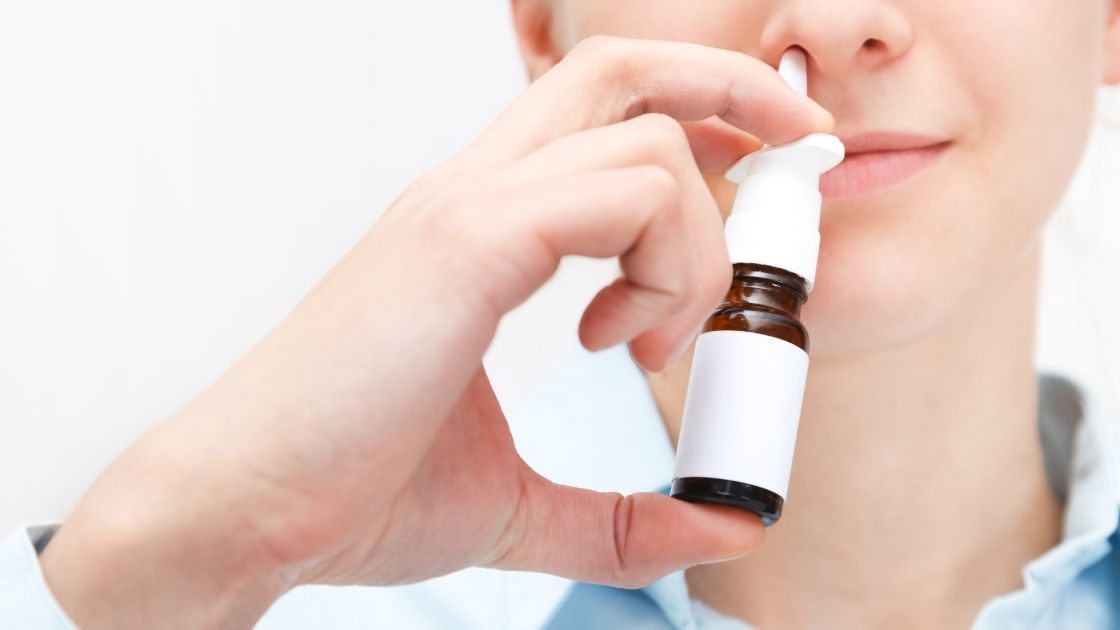Saline Nasal Spray Helps Control Nosebleeds
Epistaxis, popularly known as nosebleed, is a common problem affecting many people. While majority of cases can be easily treated, some can cause significant problems or can even be life-threatening if associated with serious disorders.
Nosebleeds usually occur during cold or dry months and are often associated with various types of cold, hay fever and allergic symptoms that may irritate the delicate nasal tissues.
In most instances, bleeding occurs when the lining of the nose or nasal mucosa becomes dry and irritated causing the blood vessels along the surface of the nasal lining to break or rupture.
Common medications used to control or prevent nosebleeds include decongestants and antihistamines. However, excessive, or prolonged use of these drugs may further aggravate the dryness and increase risk for more nosebleeds. Keeping the nasal tissues hydrated or moist with the use of saline nasal spray is frequently offered as a simple intervention which may be as effective as drug therapy in controlling nosebleeds. Apart from addressing the underlying condition or factor that causes epistaxis, using saline nasal spray traditionally becomes a practical part of medical management to prevent recurrence of nosebleed. Saline nasal spray becomes handy in humidifying the nasal environment and in moisturizing the nasal mucosa thus preventing future episodes of bleeding.
The 2020 Clinical Practice Guidelines (CPG) for Nosebleed published in the American Academy of Otolaryngology- Head and Neck Surgery authored by Dr. David Tunkel and his team outlined some supportive measures such as nasal saline spray in keeping the nose humid to prevent dry crusts and to facilitate healing.
The authors underscored that nasal saline spray or gel which can help moisturize the tissues inside the nose can reduce or prevent nosebleeds together with the elimination of contributing factors such as digital trauma (nose picking), vigorous nose blowing and proper nasal hygiene.
To prevent additional nosebleeds in patients taking anticoagulants or antiplatelet drugs, who are at increased risk of recurrent epistaxis, the CPG recommended saline lubrication as well as control of comorbidities.
The result of a North American study which was published online in the Journal of American Medical Association (JAMA) in 2016, demonstrated that salt-based spray is as effective as medicated spray in controlling nosebleeds among patients with Hereditary Hemorrhagic Telangiectasia (HHT), also known as Osler-Weber-Rendu Disease). In Hereditary Hemorrhagic telangiectasia, a condition characterized by abnormal blood vessel formation, patients suffer from frequent episodes of nosebleeds that may occur once a week or several times a day in some patients.
This double-blind, placebo-controlled randomized clinical trial which included 121 patients afflicted with HHT used either a saline spray or sprayed one of three drugs, bevacizumab, a drug for cancer and macular degeneration, a hormone, Estriol and tranexamic acid, a drug that promotes clotting.
The US-based study lead by Dr. Kevin Whitehead, an Associate professor of Cardiovascular Medicine at the University of Utah School of Medicine, said in the news release that none of the drugs proved any better than the saline spray at preventing nosebleed. No drug treatment was significantly different from placebo for epistaxis duration. Participants in the US-based study who are afflicted with HHT revealed that they had significant improvement in Epistaxis Severity Score even if they were solely using the saline spray.
References:

